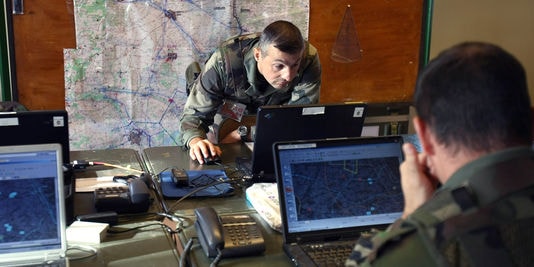NATO officially jumps into cyber war
(Baonghean.vn) - In the European defense program against the Eastern neighbor, for the first time in history, NATO has adopted the so-called "enhanced cyber defense policy" at the Summit held in the UK. This program aims to protect the information networks of member countries.
 |
| Instead of nuclear war, a cyber war would probably be more feasible but no less dangerous. |
The alliance has been keeping an eye on cyberspace for years, but the crisis in Ukraine has only become more urgent. According to NATO’s commander-in-chief, the annexation of Crimea marked a turning point in tactical military strategy: Russia effectively used information technology as a weapon, cutting off radio communications between its Crimean outposts and command centers elsewhere. If Russia were to target another member of the alliance in the future, this military tactic could be used again.
At the Conference, the Alliance agreed to apply its common commitments to cyberspace: an attack on a member state's electronic information network is considered an act of aggression against the entire Alliance, similar to an act of aggression in the old sense. Thus, NATO's cyberspace is also an "indivisible" space. In addition, this is not a lawless space: it is governed by international law and the Alliance's treaties. In theory, this means that if a country is behind an attack that results in certain consequences, it will face the risk of retaliation, including by traditional military means.
This will further strengthen the cooperation between member states as they aim to coordinate in every step: training, research, software installation, information sharing. This cooperation will also be continuous, not just in crises. They will most likely link up with private companies that own the networks. They will also have to strengthen the protection of the internal network linking 51 links, with the control center located in Mons, Belgium. NATO Deputy Commander Sorin Ducaru stressed the importance and novelty of this strategic vision, and affirmed that NATO will also provide information technology support to "partner countries" that are not members of NATO - such as Ukraine.
Meanwhile, many politicians in the US have accused Russia of hacking into the US civilian information network without providing any real evidence. Specifically, Keith Alexander - former boss of the NSA announced that a series of sensitive data from JP Morgan bank was stolen this summer, carried out or directed by the Russian government. According to him, this is a retaliation for the US financial sanctions after the Ukraine incident. (Le monde September 8)
Ganoderma lucidum






